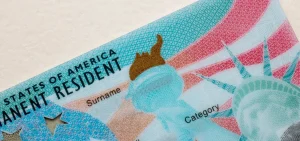
News
A circuit court says Ohio can ban green card holders from giving election money
By: Sarah Donaldson | Statehouse News Bureau
Posted on:
COLUMBUS, Ohio (Statehouse News Bureau) — The U.S. Court of Appeals for the Sixth Circuit ruled Tuesday in a 2-1 decision that Ohio can for now enforce in full its newly enacted law banning foreign nationals with a green card from giving money to statewide ballot efforts.

During session this summer, lawmakers brickbatted over whether to include that provision in the larger proposal. Rep. Brian Stewart (R-Ashville) brought the amendment forward on the Ohio House floor then and said Thursday the law was likely to face a lawsuit no matter its final form.
“The question was whether including the green card holder provision would somehow make it easier to strike down,” Stewart said in an interview. “And I’m glad we stuck to our guns.”
Judge Stephanie Davis, one of President Joe Biden’s appointees, authored the dissent.
“Parsing the law this way, however, permits Ohio to seemingly honor the First Amendment rights of some—e.g. corporations with some foreign influence—but not others—e.g. domestic nonprofit organizations—even when they are similarly situated,” Davis wrote.
Although it still needs to be litigated in full in front of the circuit court, Stewart said the circuit court’s likely to come to the same conclusion. Another appeal could put the provision in the U.S. Supreme Court’s hands, he said.

